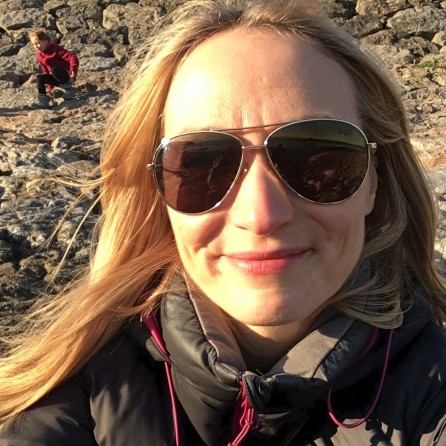
Denise shares her story of how grateful she was to learn of OMS as soon as she received her diagnosis. Here at OMS, our aim is for everyone to have the same experience as Denise.
“From the MRI, we’re fairly confident that you have MS.”
I wasn’t as shocked as people might imagine because I had received what I have since heard referred to as the ‘warning shot’ the day before (“the MRI will help us rule out MS”). The Derriford Hospital consultant immediately continued with “Now, there are things that we can do and there are things that you can do”. He went on to tell me that I will be put in touch with the MS team, with whom I would discuss treatment options. He also said that it would help to reduce my dairy intake and to remain active, before giving me the name of some organisations to look up, including OMS. The next day, I was further encouraged when I was told that I would have a meeting with Professor Hobart, whose specialist interest is the diagnosis and management of people with MS.
The first thing I said to my husband when the consultant left was “Well, you’d better get used to seeing me in lycra.” To be told immediately that there are things I could do was just what I needed. I had no time to dwell. Instead, I looked up all these organisations and within 3 days I had requested my free copy of the book “Overcoming MS”. This all sounds very positive so far, but I don’t mind admitting that I cried my way through the first chapter.
However, when it came to the 7 steps to overcome MS, I pulled myself back together. The clear scientific explanations really helped me to understand and commit myself to the program. When I met Professor Hobart, he gave me a pre-prepared pack containing lots of helpful information, including leaflets about the Overcoming MS Program, but was pleased to hear that I had already started reading the book.
It took me a few weeks to get used to the new diet and I’m still not great at the mindfulness, but other than that, I have adapted easily to my new lifestyle and I’m really enjoying it. I wanted to spend more time exercising anyway and it feels great to have such a healthy diet. In many ways, my life has improved.
I have since heard of somebody who was diagnosed recently with MS about 50 miles away. She wasn’t told about changes to the diet, vitamin D, Omega-3 or any of the other things that are now part of my life and I can’t help thinking that if I had been diagnosed without that statement of “Now, there are things that we can do and there are things that you can do”, I would have felt helpless and maybe even resigned to my fate.
The empowerment Overcoming MS has given me has meant that my mental health has not suffered at all. I am so grateful to have been diagnosed within a week of my first symptoms (I wouldn’t have been surprised if my comment of “they just don’t feel like my legs” had led the staff at the hospital to send me straight home). I am grateful to have been diagnosed in a hospital that knew about OMS and promoted it so quickly after giving me the diagnosis and I am grateful to have been sent a free copy of the Overcoming MS book.
Overcoming MS has positively impacted my life in so many ways; my recent 40-year-old health check gave me a 0.26% chance of developing cardiovascular disease, which was the lowest the nurse had ever seen. This must be largely due to my new diet and exercise program.
I would just like to end by saying thank you to Derriford Hospital for being so proactive, thank you to Overcoming MS for the empowerment and to ask that Parliament listens to their recent request to promote Overcoming MS to every person newly diagnosed with MS. I find it hard to imagine how differently I would feel today had I not known about Overcoming MS and how it would have affected my mental health.